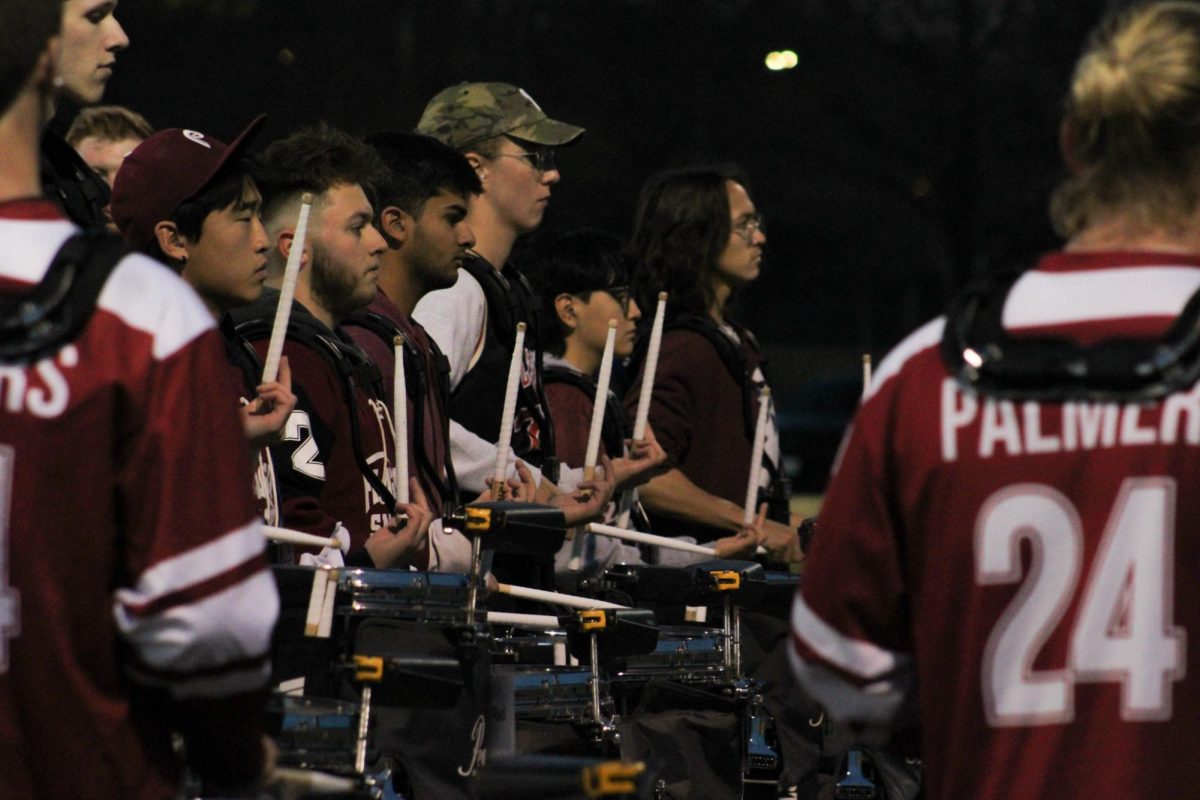A rock band’s guitarist is a very hard thing to replace. This is especially true when the band in question is replacing the uncanny virtuosity of modern guitar god John Frusciante – for the second time. In fact, given those circumstances, in order to come out with an amazing new album, the band would probably need to have the best rhythm section of the last two decades and one of the most enigmatic frontmen in mainstream rock. Luckily enough, the Red Hot Chili Peppers have all of this and then some. Their most recent offering, “I’m With You,” is a strong testament to the quartet’s impressive ability to overcome adversity throughout their three-decade career.
It’s been five long years – including a two-year hiatus – after 2006’s monstrously successful (and successfully monstrous) 24-track double album “Stadium Arcadium.” The question on the lips of fans and critics alike has been a simple one: can newcomer Josh Klinghoffer fill the shoes left by RHCP’s creative powerhouse Frusciante?
Fortunately enough, the answer is a resounding “yes.” “I’m With You” not only retains the dynamic vigor expected of the Red Hots, but also entirely reinvigorates the funk-rock veteran’s sonic repertoire. If one had to pick anyone to replace the creative genius that is John Frusciante, Klinghoffer is definitely the man. In addition to playing disciple to Frusciante’s six-string messiah as a trusted partner on several solo projects, Klinghoffer has previously toured as a live backup guitarist during RHCP’s massive “Stadium Arcadium” Tour.
As a result, the musical chemistry on “I’m With You” is sublime. If Klinghoffer was nervous about replacing his overwhelmingly respected mentor, he certainly didn’t show it. Ranging from textural subtlety to surging stabs of melodic intervention, his guitar work demonstrates wisdom beyond his years. He mirrors his predecessor’s knack for knowing when to drop back in the cut to shade in the spaces, as in the delicately bluesy rhythm work on “Meet Me at the Corner” – and when to burst out in musical ecstasy, such as the manic fretboard fireworks during the outro of “Goodbye Hooray.”
Perhaps the largest shift in stylistic direction for the Peppers on this album stems from the massive creative input from bassist extraordinaire Michael “Flea” Balzary. During the group’s aforementioned two-year hiatus, Flea studied at a music university, both deepening his knowledge of music theory and formally learning to play piano. As a result of this, a shift toward more thoughtfully composed songs seems to overshadow RHCP’s usual affinity for jam-based tunes. In addition, a significant chunk of songs were composed on and feature piano as a primary instrument. This is a landmark in the group’s 28-year career. As a result, the album features such eclectic tracks as the avant-funk kiss-off “Even You Brutus?” and the bouncing, happy-go-jazzy “Happiness Loves Company,”
Yet more heretofore new ground is broken in the influence of Afro-Caribbean music on the majority of the record, a trend Flea attributes to a trip he recently took to Northern Africa with Klinghoffer and Damon Albarn of Gorillaz/Blur fame. As a result, the band’s sound is lent a totally new dimension. In some places it’s subtle, such as the clave pattern on the cowbell featured on lead single “The Adventures of Raindance Maggie.” Other times, it’s immediately noticeable, as per the island-jammy, Latin groove of “Did I Let You Know” and album closer “Dance Dance Dance.”
In conjunction with adding a significant African influence to their music – or perhaps because of it – the Chili Peppers seem to have brought a healthy chunk of funky swagger back to their step, providing a welcome reminder that Flea and drummer Chad Smith are truly the dynamic duo of the rock game. Smith makes a complex 7/8 groove work almost too well on the afro-funk track “Ethiopia,” while Flea singlehandedly drives rousing album opener “Monarchy of Roses” with a bass line that’s as much disco-drenched as it is disgustingly funky. Heck, there’s even a bass solo in “Goodbye Hooray,” and we haven’t seen one of those since 1995’s “One Hot Minute.”
This is not to say that the band has completely neglected its recently developed melodic side. Lead singer Anthony Kiedis, renowned for rapping about the most sexual of deviances in the early days of the Peppers, has truly outdone himself on both the lyrical and vocal front on “I’m With You.” The shining example of this is “Brendan’s Death Song,” a touchingly reflective ballad about recently deceased friend of the band and notable LA punk rock booker Brendan Mullen. As Kiedis sings, “Let me live/So when it’s time to die/Even the reaper cries/Let me die/So when it’s time to live/Another sun will rise” over the melodic swell of his bandmates, he demonstrates the written and expressive depth he has developed over the latter half of the band’s career.
In an ideal world, “I’m With You” is the album that Red Hot Chili Peppers fans everywhere can agree upon. It’s got the throwback funk-rock feel in tunes like the slippery “Factory of Faith” and the syncopated chaos of “Goodbye Hooray.” It’s got the melodic side of the Chilis we’ve all come to know and love, doing ample justice to their classic hits like “Soul to Squeeze” and “Under the Bridge” with new tracks like “Police Station” and the aforementioned “Brendan’s Death Song,” which might just be the best song on the album. And all of it is coupled with the trusted, pristine production work of longtime collaborator Rick Rubin. For RHCP fans everywhere, this album was worth the wait.
Dave Coffey can be reached at [email protected].












